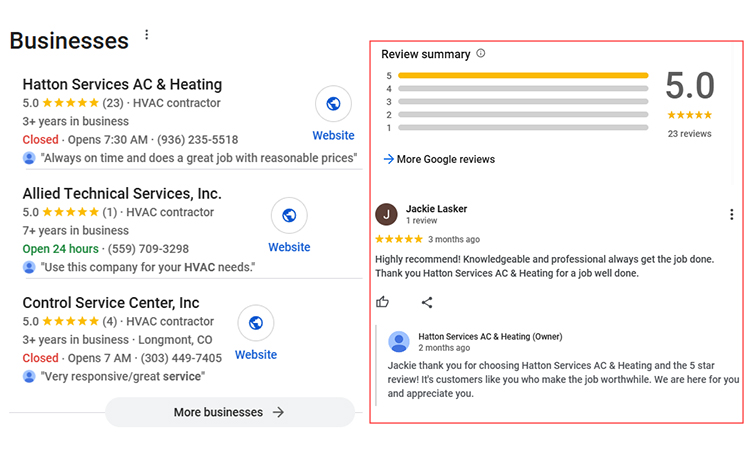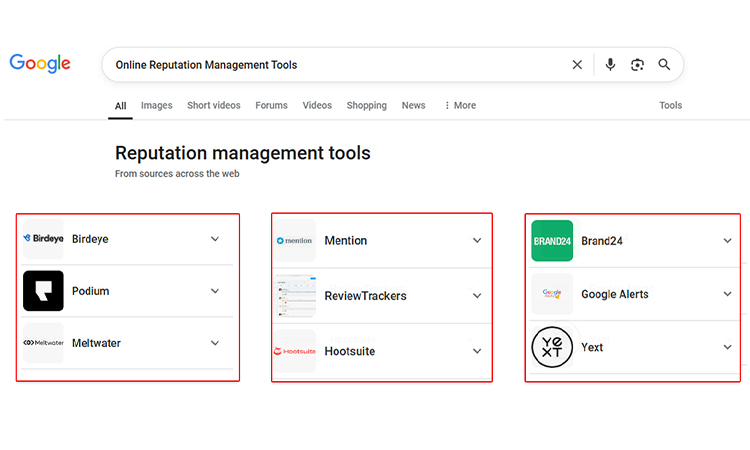Despite the limited infrastructure and monetary facilities, small businesses identify a product or service gap in the market to succeed. In this regard, they focus on innovation and R&D programmes to improve service and product quality to meet customer requirements. However, as purchasing patterns and decisions have undergone several changes, and there are several budding entrepreneurs, small businesses need to focus on maintaining their brand reputation to stay relevant and competitive.
Reputation management for small businesses includes strategic monitoring of products and services, or both, to engage a significant range of customers by fulfilling their demands. It also includes managing negative reviews on social media and other platforms, and addressing challenges to foster customer loyalty and trust.
Reputation Management for Small Business: A Challenge?
Bryant H. McGill said, “Unfortunately, your reputation often rests not on your ability to do what you say, but rather on your ability to do what people expect”. So, is reputation management a challenge for small businesses? Some may argue that technological advancements have been advantageous for small businesses in creating a buzz regarding products and services, and social media platforms are beneficial in connecting customers to companies and vice versa.
Strict Budget and Employee Numbers
The current scenario is different and complex. Positive reviews on social media pages are able to attract customers and empower customer loyalty, while negative reviews may affect business continuity and long-term profitability. Small businesses often face challenges regarding budget, time and staff to ensure reputation management. To be specific, these companies have less control over customers’ decisions and reviews, compared to larger organisations.
Limited Administrative Strategies
The lack of administrative engagement in encouraging people to leave positive reviews for companies is also a key challenge for small businesses in the competitive marketplace. Due to the lack of resources and financial arrangements, small businesses face challenges regarding the development of brand credibility and trust-building approaches. It is evident that the incorporation of advanced tools and technologies is not enough for small businesses to maintain their reputation, as their operational programmes are challenging due to infrastructural and management challenges.
Financial and Infrastructural Challenges
The monetary and infrastructural challenges lead to security issues for small businesses, affecting customer relationships and brand reputation. Despite the increasing risk of cybersecurity, in several cases, small businesses fail to secure their databases and customer information, such as addresses, phone numbers, email addresses and other sensitive data.
Strategies Incorporated by Small Businesses to Ensure Reputation Management
Small businesses consider the following strategies to empower and manage their reputation in their respective markets.
1. Monitoring Digital Presence

Small businesses focus on regular monitoring of relevant keywords and business name in social media platforms, Google and review platforms to track sentiment values, reviews and mentions. The continuous monitoring programmes are advantageous to understand people’s feedback regarding brands and what they are looking for. The use of relevant and high-traffic keywords is valuable to reach customers easily. The application of reliable and advanced technologies is valuable for small businesses to monitor their online presence, and small businesses are on the ball to extend market opportunities.
2. Encouraging Positive Reviews
Small business administrators encourage customers to ensure positive reviews on several digital platforms, such as Facebook, Google and Yelp. In the case of local businesses, it is observed that 86% of customers check online reviews, and 95% of them are from the age group of 18-34. On the other hand, 40% of consumers consider reviews from the past 2 weeks before making purchasing decisions, while 57% only pursue products with a minimum of 4 stars. In this regard, small businesses consider facilities and incentives for customers to encourage them to leave positive reviews.
Discounts and offers are two advantageous measures for small businesses to influence consumers’ choices, while their feedback is considered to bring effective changes. The collective growth of reputation for small businesses is deeply driven by the mutual relationship between companies and their customers.
3. Increasing Audience Engagement

Small businesses prioritise prompt responses and professional communication with customers to influence their perceptions regarding companies. In this regard, small businesses consider the implications of digital tools and platforms, such as text messaging, emails, WhatsApp and others to increase organisational visibility. On the other hand, small businesses value cultural elements and community-based practices to influence consumers about their brand identity and social significance.
Through effective communication (online and offline), small companies try to reach out to consumers to meet their psychological and materialistic requirements. However, small businesses use visually appealing videos and images to attract customers and increase customer engagement. In this regard, personalised approaches can be advantageous for them, such as tailoring content as per customer requirements, and individual messaging is effective in empowering brand reputation. They also analyse and track business performance and outcomes to examine the effectiveness of their strategies.
4. Managing Negative Feedback
It is often suggested that if you want to mitigate a problem, first, you should identify and acknowledge it as a challenge. Small businesses apply this common theory to manage negative feedback on online platforms. They acknowledge inconveniences and apologise for issues irrespective of their impact. They also acknowledge negative feedback from customers and focus on self-analysis to improve the quality of products or services as per customer requirements.
It represents their professional approaches towards customers, considering them as an integral part of companies. However, small businesses tend to use offline platforms to address arguments. In this regard, emails, texts, phones or any private channels have been beneficial to avoid public disputes. They also try to offer confidential and personalised communication, leading to effective resolution.
5. Developing Quality Content

The impact and popularity of quality content cannot be denied as a key part of online and offline marketing. The consistency of quality content and its relevance influence customers, while their intriguing nature drives their purchasing decisions. In this regard, small businesses focus on developing engaging and valuable content for their social media platforms and websites. The content (images, videos, reels or write-ups) influences customers’ interest, as sometimes they come to know about very new things to reconsider their requirements and purchasing decisions.
On the other hand, the cultural elements and traits influence the content shared by small businesses to develop customer loyalty among local people. The cultural homogeneity and mutual understanding fuel psychological satisfaction among people with different requirements. The authenticity and cultural sensitivity of small businesses, along with their ability to resonate with traditions and local values, play a key role in establishing a positive and strong reputation.
6. Using Social Media Platforms
Research suggests that positive online reviews increase sales by 18%, while 86% of customers do not show any interest in local brands with too many negative reviews. The emergence of social media platforms such as instagram, facebook, linkedin, twitter is a key factor in the global market, creating better brand visibility and customer engagement.
Small businesses not only post photos or share stories regarding their services or products, but they also try to develop a link with customers to empower brand acceptance and reputation. The posts shared in social networks influence people’s ideas and perceptions regarding brands and generate a positive brand impression. By leveraging social media platforms, small businesses respond to negative comments and share insightful information regarding products and services. It empowers a long-lasting relationship with customers and diverse business opportunities.
7. Implementation of Online Reputation Management Tools

The implication of reputation management software is designed to assist in brand monitoring, managing and improving online reputation. They procure online feedback from different media platforms, such as social media, digital forums and review sites to track customer interests, identify potential challenges and manage reviews. In this regard, small businesses consider the All-in-One Review software as it features advanced customisation and multiplatform review facilities.
However, reputation repair services can be advantageous for empowering brand reputation in the market. As these services imply professional approaches to improve brand image and identity, they are effective for long-term business success. On the other hand, reputation protection services are valuable to shape business identity with the help of technological advancements.
On the other hand, local small businesses and service providers consider Podium as a key online reputation management software, featuring text-based review invitations and payments. However, startup companies, agencies and SMEs use Brand24 for in-depth analysis of customer sentiment through social monitoring, while small service-based businesses use NiceJob for its simple and automated programmes.
8. Incorporation of Effective SEO Strategies
Small businesses focus on developing a positive online presence based on local SEO to manage their reputation in different markets. In this regard, they focus on creating a strong “Google My Business” profile. They tend to ensure proactive customer engagement through social media and reviews, based on user-friendly websites. They prioritise local SEO programmes, such as establishing local backlinks and optimising local keywords to attract local people.
However, small businesses try to ensure that customers leave both positive and negative reviews so that they can incorporate better reputation management strategies. The small businesses prioritise linking their websites to local organisations to attract more customers and increase visibility. SEO strategies have been cost-effective, compared to paid advertising, and they empower organic search results. Higher search rankings and a valuable digital presence can develop an effective brand reputation and customer trust, as users mostly rely on higher search results with a positive online reputation.
Reputation Management for Small Business: What to Do and What Not
- Firstly, small businesses should focus on in-depth analysis of customer feedback to avoid mistakes and ensure continuous practices. In this regard, they need to highlight several underlying factors that affect overall reputation, while the implementation of changes through strategic actions is also essential to empower brand values.
- Secondly, the companies should be open about their pros and cons to provide a clear image to customers, which can be influential for customers to make final decisions. Honesty and transparency can be advantageous to continue in different market conditions, and in this regard, companies must not hesitate to ask for feedback from customers.
- Thirdly, competitor analysis can be beneficial for exchanging ideas in particular market conditions. Based on the results, small businesses can bring changes in their usual operational landscapes, elevating their business reputation and corporate recognition.
- Small businesses need to be proactive to implement reputation management strategies to prevent challenges from escalating. They should also develop a crisis plan to handle negative reviews. The plan must include what is to be said, how situations will be addressed and who will lead and respond.
- Business owners should track several key metrics, such as customer satisfaction, sentiment, social media engagement and review volume, to examine reputation management efforts and make further improvements.
- Small businesses should not avoid monitoring online conversations, as it may mislead reputation management strategies on a significant scale. Small businesses may use several tools, like social media platforms and Google Alerts.
- On the other hand, small businesses must not take any unethical measures to address or challenge public opinions and reviews. The companies should accept the fact that their decisions and services are not beyond criticism, while critiques must be addressed with a generous approach. In this regard, proactive communication with customers and valuing the prior experiences of customers, before making any decisions regarding reputation management.
- As customer experience and knowledge regarding brands influence their engagement and retention, small businesses should not avoid the dynamic market factors and industrial changes before starting marketing campaigns or brand awareness programmes. Small business owners should not be repetitive with their customer service, but rather they should incorporate sustainable changes to improve their business reputation.
Conclusion
Reputation management has been a key concern for small businesses, as the resources and infrastructure are limited in nature. Despite this, small businesses have optimised positive reputation management strategies to attract new customers and create a reliable business presence in the market.
Their digital presence and audience engagement are embedded in reputation management programmes, as the customer-company relationship stands for an intertwined state, influencing organisational reputation and brand identity.
On the other hand, small business owners rely on feedback from customers and value cultural elements, while developing new strategies must include careful consideration of customers’ perceptions and changing requirements.
Social media management and the implementation of review management software have been effective for small businesses to ensure market reputation, while the company-customer coordination must be facilitated with personal messaging, emails and texts. The dichotomy of reviews (positive and negative) should be strategically incorporated to avoid any superficial or vague ideas and decisions.
Additional Sources:
- The Beginner’s Guide to Digital Reputation Management for Small Businesses
- The Ultimate Guide to Reputation Marketing: Strategies for 2025

